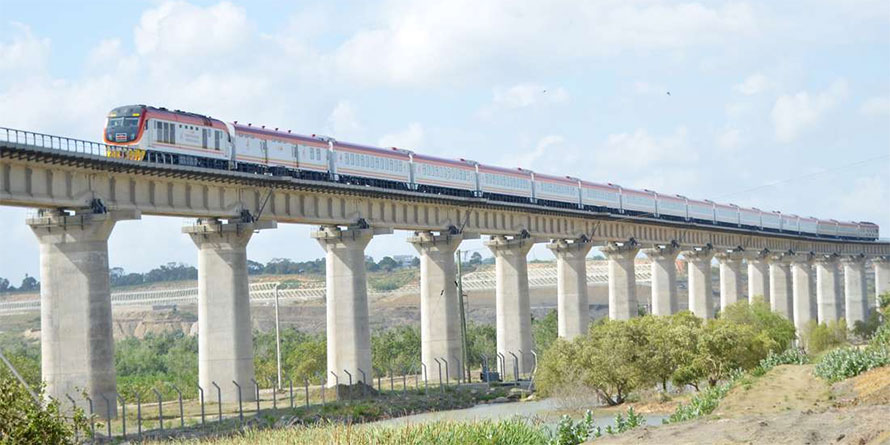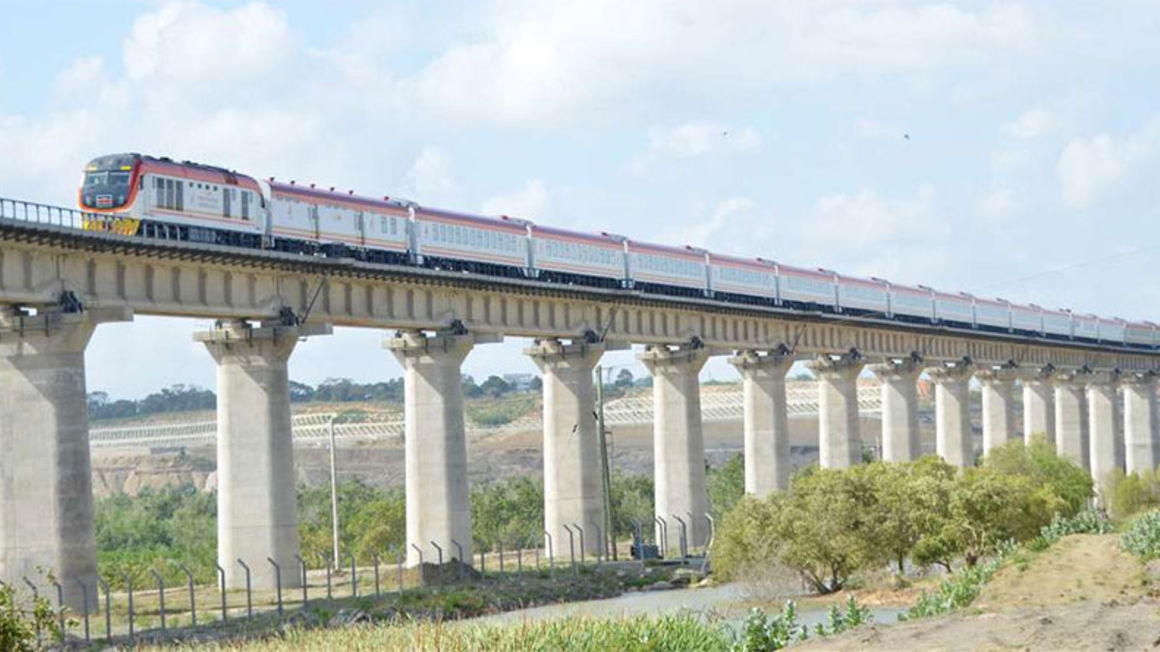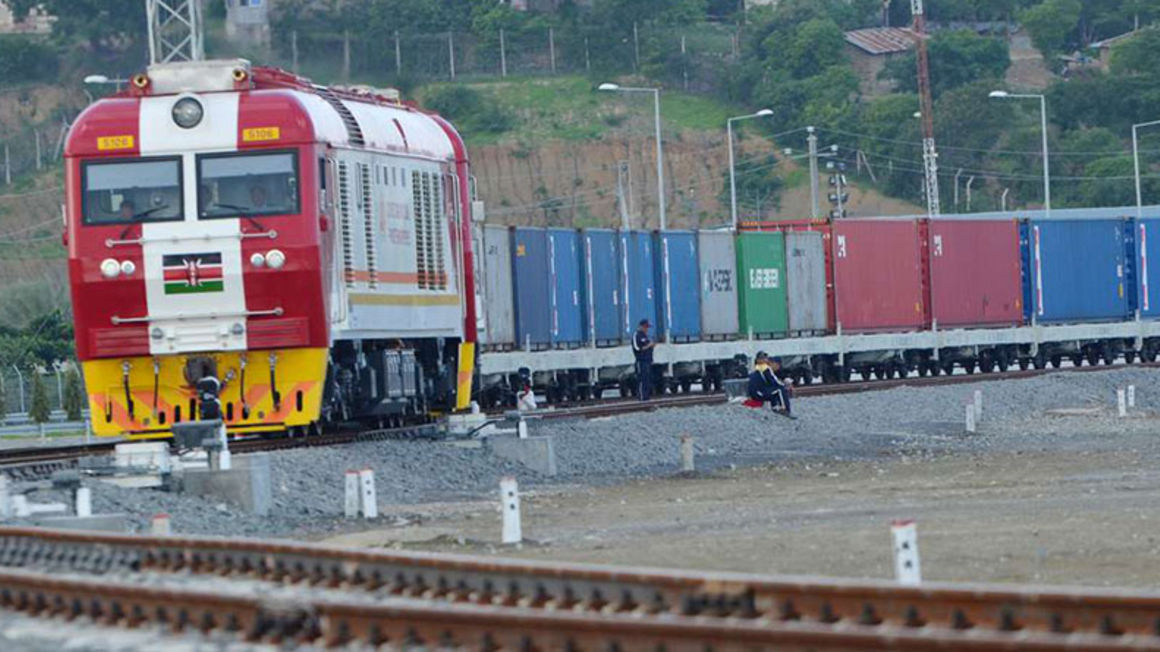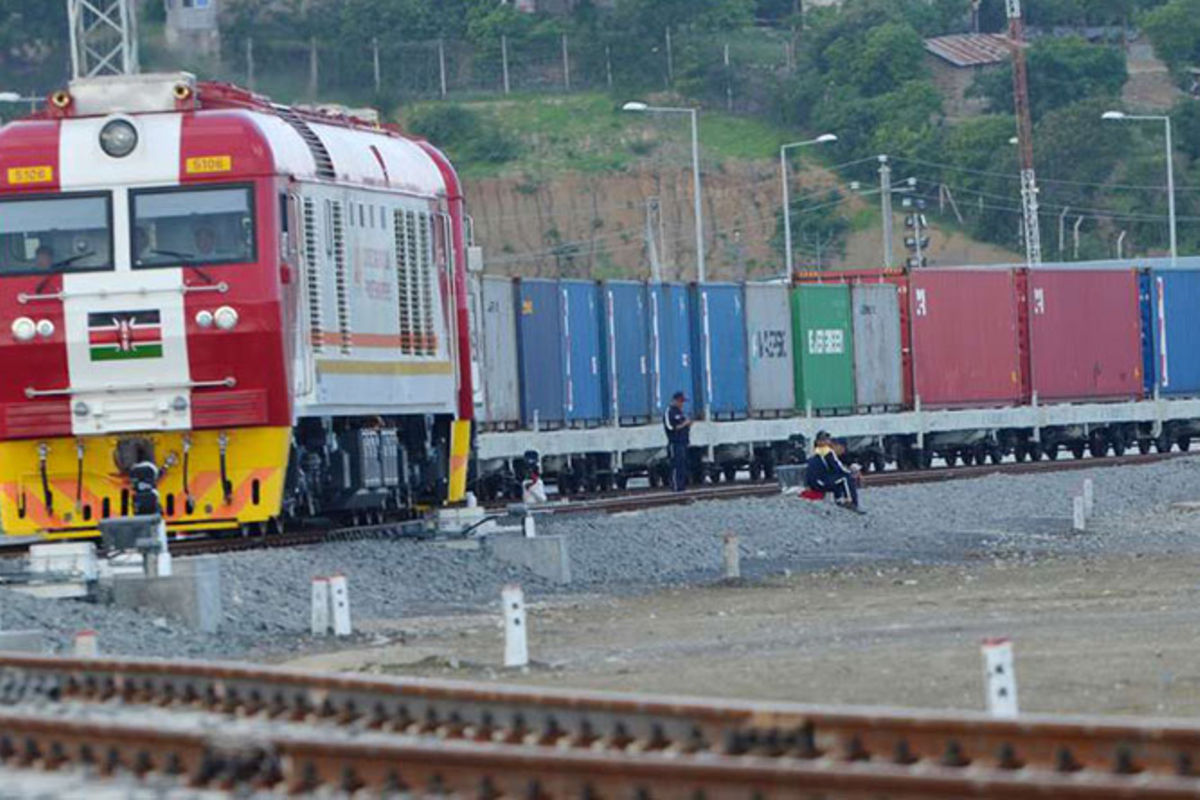MK254
JF-Expert Member
- May 11, 2013
- 31,751
- 48,392
Inatia moyo sana..........

SGR passenger train on the Miritini Bridge along the Mombasa-Nairobi route. FILE PHOTO | NMG
Revenue generated from cargo and passenger services on the standard gauge railway (SGR) rose by 33 percent in the six months to June, lifted by a rebounding economy, official statistics show.
Data by the Kenya National Bureau of Statistics (KNBS) shows that the passenger and cargo trains generated Sh7.936 billion in the period, up from Sh5.963 billion in a similar period last year.
The cargo trains accounted for the biggest chunk of the revenue increase in the period at Sh1.5 billion while the passenger service posted a growth of Sh470 million.
SGR more than doubled its passenger numbers in the period under review and posted a 38.3 percent jump in the cargo volumes, driving the revenue growth at a time air and road transport grappled with low returns due to the Covid-19 containment measures.
It recorded 764,942 passengers in the six months to June, reflecting a 133.8 percent jump from 327, 097 passengers in a similar period last year.
The increase in passenger numbers came around the Easter holidays, which normally see thousands of people travel to the coastal city of Mombasa, marking a high season for the SGR.
SGR operates an express train from Nairobi to Mombasa and an intercounty service that stops at Athi River, Emali, Kibwezi, Mtito Andei, Voi, Miasenyi, and Mariakani stations.
Kenya Railways also reduced freight charges from $600 to $510 for a 20-foot container and from $850 to $725 for a 40-foot type from Mombasa to Naivasha in February, leading to an increase in cargo volumes.
Africa Star Railway Operation Company (Afristar), the company that operates the SGR, said that the number of containers carried aboard the trains had increased by nearly half in the first month after lowering the charges.
The firm also introduced the loading of bulk cargo on special open-type wagons to attract more freight.
In the period under review, SGR cargo trains ferried 2.739 million tonnes, a 38 percent rise from 1.98 million tonnes carried in a similar period at the height of the coronavirus disruptions.
The train ferries the cargo from the Port of Mombasa to the Nairobi Container Depot at Embakasi, from where it is moved by road to other parts of the country and the region.
SGR’s increased revenues came at a time road and air transport has seen reduced business due to a mix of coronavirus-induced hardships and restrictions.
Revenues for the public transport sector also dipped since last year when Kenya imposed restrictions to curb the spread of the virus.
They have been carrying less than half their seating capacity in line with social distancing rules but the State allowed them to resume full capacity early this month.
Kenya Airways has since last year grounded part of its fleet despite the resumption of domestic and international travel, throwing the national carrier into losses and deepening its reliance on the Treasury for funding.
The rise in SGR’s sales in the six months to June comes even as the train service revenues continue to trail expenditure, exposing taxpayers to a huge bill for sustaining operations in addition to repaying the loan used to construct the rail and purchase the wagons.
Parliament last year revealed that Kenya had not paid Sh38 billion to Afristar, majority-owned by China Road and Bridge Corporation.

 www.businessdailyafrica.com
www.businessdailyafrica.com

SGR passenger train on the Miritini Bridge along the Mombasa-Nairobi route. FILE PHOTO | NMG
Revenue generated from cargo and passenger services on the standard gauge railway (SGR) rose by 33 percent in the six months to June, lifted by a rebounding economy, official statistics show.
Data by the Kenya National Bureau of Statistics (KNBS) shows that the passenger and cargo trains generated Sh7.936 billion in the period, up from Sh5.963 billion in a similar period last year.
The cargo trains accounted for the biggest chunk of the revenue increase in the period at Sh1.5 billion while the passenger service posted a growth of Sh470 million.
SGR more than doubled its passenger numbers in the period under review and posted a 38.3 percent jump in the cargo volumes, driving the revenue growth at a time air and road transport grappled with low returns due to the Covid-19 containment measures.
It recorded 764,942 passengers in the six months to June, reflecting a 133.8 percent jump from 327, 097 passengers in a similar period last year.
The increase in passenger numbers came around the Easter holidays, which normally see thousands of people travel to the coastal city of Mombasa, marking a high season for the SGR.
SGR operates an express train from Nairobi to Mombasa and an intercounty service that stops at Athi River, Emali, Kibwezi, Mtito Andei, Voi, Miasenyi, and Mariakani stations.
Kenya Railways also reduced freight charges from $600 to $510 for a 20-foot container and from $850 to $725 for a 40-foot type from Mombasa to Naivasha in February, leading to an increase in cargo volumes.
Africa Star Railway Operation Company (Afristar), the company that operates the SGR, said that the number of containers carried aboard the trains had increased by nearly half in the first month after lowering the charges.
The firm also introduced the loading of bulk cargo on special open-type wagons to attract more freight.
In the period under review, SGR cargo trains ferried 2.739 million tonnes, a 38 percent rise from 1.98 million tonnes carried in a similar period at the height of the coronavirus disruptions.
The train ferries the cargo from the Port of Mombasa to the Nairobi Container Depot at Embakasi, from where it is moved by road to other parts of the country and the region.
SGR’s increased revenues came at a time road and air transport has seen reduced business due to a mix of coronavirus-induced hardships and restrictions.
Revenues for the public transport sector also dipped since last year when Kenya imposed restrictions to curb the spread of the virus.
They have been carrying less than half their seating capacity in line with social distancing rules but the State allowed them to resume full capacity early this month.
Kenya Airways has since last year grounded part of its fleet despite the resumption of domestic and international travel, throwing the national carrier into losses and deepening its reliance on the Treasury for funding.
The rise in SGR’s sales in the six months to June comes even as the train service revenues continue to trail expenditure, exposing taxpayers to a huge bill for sustaining operations in addition to repaying the loan used to construct the rail and purchase the wagons.
Parliament last year revealed that Kenya had not paid Sh38 billion to Afristar, majority-owned by China Road and Bridge Corporation.

SGR posts 33pc rise in Jan-June revenue
Revenue generated from cargo and passenger services on the SGR rose by 33 percent in the six months to June, lifted by a rebounding economy, official statistics show.




